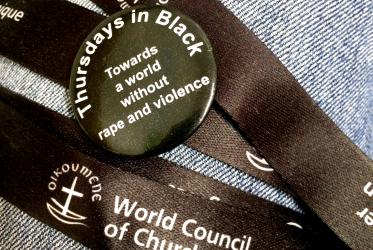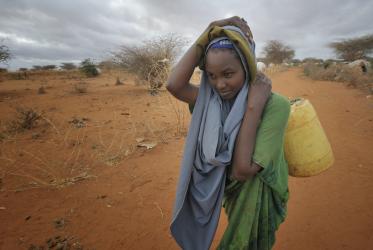Displaying 41 - 60 of 65
Tveit in South Africa: “ We know. We dare. We can.”
12 June 2016
Common prayer in Geneva responds to acts of violence
16 November 2015
WCC Executive Committee speaks out on migrant crises
12 June 2015









